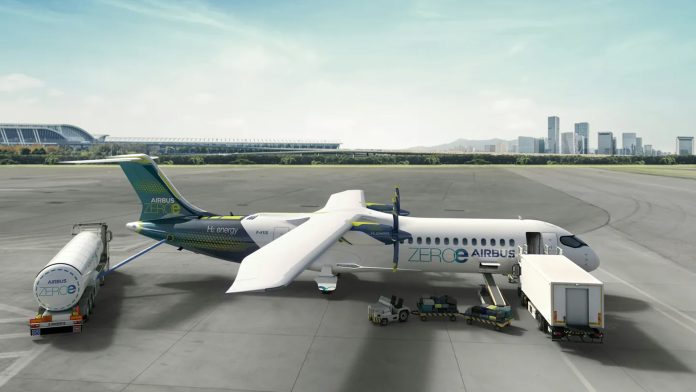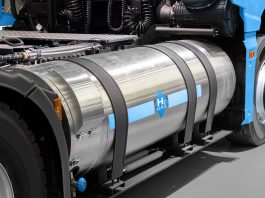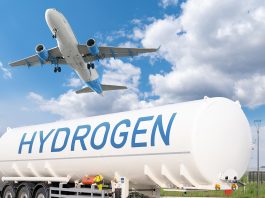Airbus has announced it will spearhead a project that will demonstrate the viability of liquid hydrogen refuelling and handling for the aviation industry.
The GOLIAT (Ground Operations of LIquid hydrogen AircrafT) project has been awarded €10.8m via the EU’s Horizon Europe Programme to demonstrate small-scale liquid hydrogen aircraft ground operations at three European airports.
The utilisation of liquid hydrogen in the aviation sector could prove instrumental in significantly decarbonising the industry.
Karine Guenan, Vice President of ZEROe Ecosystem, Airbus, explained: “We continue to believe that hydrogen will be an important fuel for the future of short-haul aviation.
“We welcome the opportunity to help build the operating case for the widespread daily use of liquid hydrogen at airports.”
Benefits of liquid hydrogen
The drive to decarbonise the economy and enhance Europe’s energy independence is accelerating the adoption of hydrogen for mobility and stationary applications.
Hydrogen will be key to decarbonising short- and medium-haul aviation, advancing low-carbon aviation operations.
As a clean and efficient fuel, liquid hydrogen presents a promising solution for reducing greenhouse gas emissions and reliance on fossil fuels in airport operations.
Its high energy density supports long-range air travel. However, widespread deployment of liquid hydrogen at airports requires addressing operational, regulatory, economic, and safety challenges, as well as evaluating the capacity and performance of relevant technologies.
Aims of the GOLIAT project
The GOLIAT project will be run by a consortium of ten partners from eight countries, including:
- Airbus
- Chart Industries
- Leibniz University Hannover
- Royal Schiphol Group
- TU Delft
- Rotterdam The Hague Airport
- Vinci Airports
- Stuttgart Airport
- H2FLY
- Budapest Airport
The project will run for four years and will explore how high-flow liquid hydrogen refuelling and handling technologies can be safely and reliably used for airport operations.
GOLIAT will explore how these technologies can be scaled up to support large commercial aircraft and ground operations at airports.
Additionally, the project will develop the standardisation and certification framework for future liquid hydrogen operations and address the economic challenges of the hydrogen value chain for airports.









